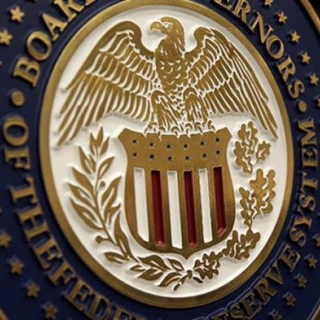


A 50-basis point interest rate cut next month could potentially send the wrong signal to markets about the state of the U.S. labor market, San Francisco Federal Reserve President Mary Daly told the Wall Street Journal.
A soft July jobs report, as well as muted inflation data for the month, have fueled increased expectations that the Fed will slash borrowing costs at its September meeting. It would be the first drawdown by the central bank since it paused its policy easing cycle last December.
Investors are now all but pricing in a 25-basis point reduction after the Fed's September 16-17 gathering, with Investing.com's Fed Rate Monitor Tool now seeing the probability of such a move at over 99%. Treasury Secretary Scott Bessent, however, has called for an even deeper half-point cut due partially to sharp downward revisions in job growth in June and May.
But, in an interview with the WSJ, Daly said she is worried that a fifty-point lowering "would send off an urgency signal that I don't feel about the strength of the labor market."
"I just don't see that. I don't see the need to catch up," Daly added in her comments to the paper.
But Daly flagged that government indicators suggest that while the labor market is "not bad right now," it is harder to ignore that the "direction of change is going the wrong way."
Last month, Daly was part of a majority of Fed rate setters who backed leaving rates unchanged at their current level of 4.25% to 4.5%, but has since said she would support a September cut, partly citing inflationary pressures that have been more tepid than many observers had initially feared.
Economists have widely predicted that President Donald Trump's tariffs will drive prices higher, although the impact of the levies has so far been tame. Still, concerns remain that the full effect of the duties will be felt in the coming months.
Against this backdrop, Daly told the WSJ that her previous prediction for two rate cuts this year remains reasonable, but said three reductions in 2025 could be appropriate if more signs emerged that the labor market was in a increasingly "precarious" state. Conversely, fewer cuts may be needed should inflation begin to heat up once again, Daly said.
Monetary policy is also likely to be "too restrictive" for the current trajectory of the economy, and may constitute a "recalibration," Daly said. She favored a gradual move to a more neutral policy stance over the "next year or so."
Source: Investing.com
Stephen Miran, a Federal Reserve governor whose term ends at the end of January, said Thursday that he is looking for 150 basis points of interest-rate cuts this year to boost the U.S. labor market. ...
Federal Reserve Vice Chair for Supervision Michelle Bowman outlined significant changes to bank supervision and regulation during a speech at the California Bankers Association Bank Presidents Seminar...
Further changes to the Federal Reserve's short-term interest rate will need to be "finely tuned" to incoming data given the risks to both the U.S. central bank's employment and inflation goals, Richmo...
Richmond Federal Reserve Bank President Tom Barkin said the monetary policy outlook remains in a fragile balance given the conflicting pressures of rising unemployment and persistently high inflation....
The US Federal Reserve agreed to cut interest rates at its December meeting only after a highly nuanced debate about the current risks facing the US economy, according to minutes from the two-day meet...
Oil prices stabilized on Thursday (February 12th), as the market reassigned a risk premium to US-Iran tensions despite US inventory data showing swelling domestic supplies. This movement confirms one thing: geopolitical headlines are still more...
Gold prices weakened slightly on Thursday (February 12th), as more solid US employment data reduced market confidence in an imminent Federal Reserve interest rate cut. The strong employment data prompted market participants to shift expectations of...
The Hang Seng Index reversed its downward trend in Hong Kong on Thursday (February 12th), weakening by around 0.9% to around 27,000 after a strong session earlier. This decline halted the momentum of the short term rally, as investors began to...